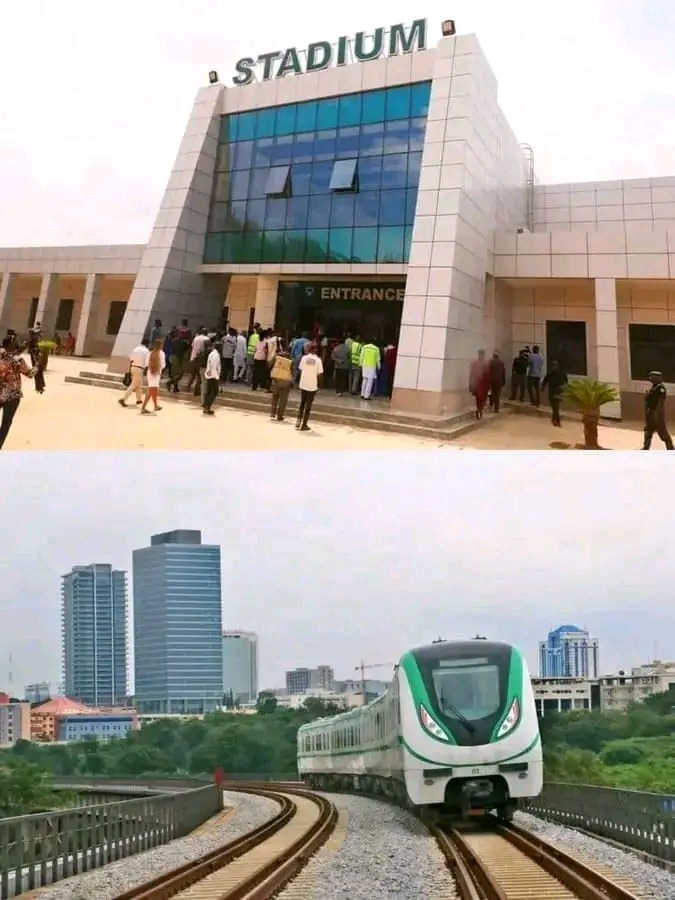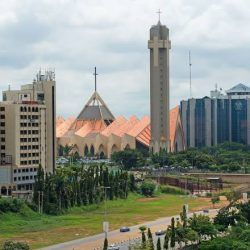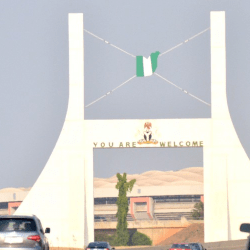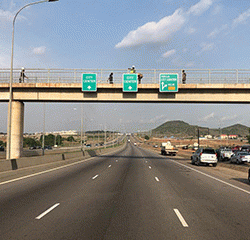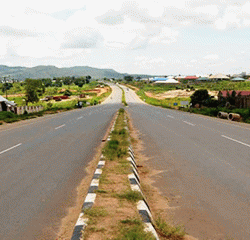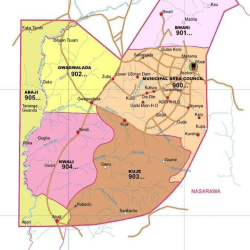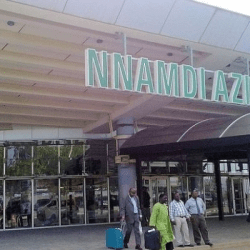The Abuja Stadium Train Station, officially known as the Abuja Idu Station, is a significant railway station located near the Moshood Abiola National Stadium in Abuja, Nigeria. It plays an essential role in the city’s transportation infrastructure, serving as one of the key stops on the Abuja-Kaduna railway line. Here’s more about the station:
- Location:
The train station is situated near Idu, an industrial area on the outskirts of central Abuja, and it is close to the Moshood Abiola National Stadium (formerly known as Abuja National Stadium).
The station is part of the larger Abuja Rail Mass Transit system, which is designed to provide efficient public transportation to and from the city center and surrounding areas.
- Abuja-Kaduna Railway:
The Abuja-Kaduna railway is a 186 km (115 miles) long railway line connecting Abuja (the capital city) to Kaduna, an important city in northern Nigeria.
The line, which opened in 2016, was built to provide a safer and faster alternative to road transport, given the safety concerns on the Abuja-Kaduna highway.
The Abuja Stadium Train Station is one of the main stops on this line, making it a critical hub for passengers traveling between the two cities.
- Infrastructure and Services:
The station is modern and well-equipped, with facilities such as ticket counters, waiting areas, and restrooms for passengers.
Trains running on the Abuja-Kaduna line are diesel-powered and offer both economy and first-class services. The journey from Abuja to Kaduna typically takes around 2-3 hours, depending on the train’s schedule and stops.
- Connection to Other Transportation:
The Abuja Light Rail system, a separate but complementary service, connects the Abuja Stadium Station with other parts of the city, including the Nnamdi Azikiwe International Airport.
This integration of rail systems enhances the ease of commuting within the capital city, as passengers can use the light rail system to connect between the airport, the stadium, and central Abuja.
- Commuter Benefits:
The Abuja Stadium Train Station is used by thousands of passengers daily, providing a safer alternative to road travel between Abuja and Kaduna, where highway robberies and kidnappings have been a concern.
The station helps to decongest Abuja’s roads by offering an efficient and affordable mode of transportation.
Ticket prices are relatively affordable, making the train service accessible to a broad range of people, from daily commuters to business travelers.
- Challenges and Popularity:
Since its inception, the Abuja-Kaduna train service has grown in popularity due to its reliability, leading to high demand for tickets, especially during peak hours.
There have been occasional challenges, including overcrowding during rush hours, and some passengers have reported difficulties in securing tickets on short notice.
Despite these challenges, the service remains a popular and much-needed transportation link for the region.
- Safety and Security:
Security at the Abuja Stadium Train Station and on the trains themselves is a top priority. There is a strong presence of security personnel, including police and military forces, to ensure the safety of passengers, particularly due to security concerns in the region.
The trains are equipped with surveillance cameras and other security measures to prevent incidents during travel.
- Future Developments:
The Nigerian government has plans to expand the rail infrastructure in Abuja and beyond, with proposals for new routes and stations that will enhance connectivity across the country.
The success of the Abuja-Kaduna railway has prompted interest in additional routes that could link Abuja with other major cities like Lagos and Kano.
The Abuja Stadium Train Station is a vital part of Nigeria’s growing rail network, offering a modern and reliable transportation option for those traveling between Abuja and other regions. Its proximity to key landmarks like the national stadium and integration with the Abuja Light Rail system enhances its significance in the city’s infrastructure.
